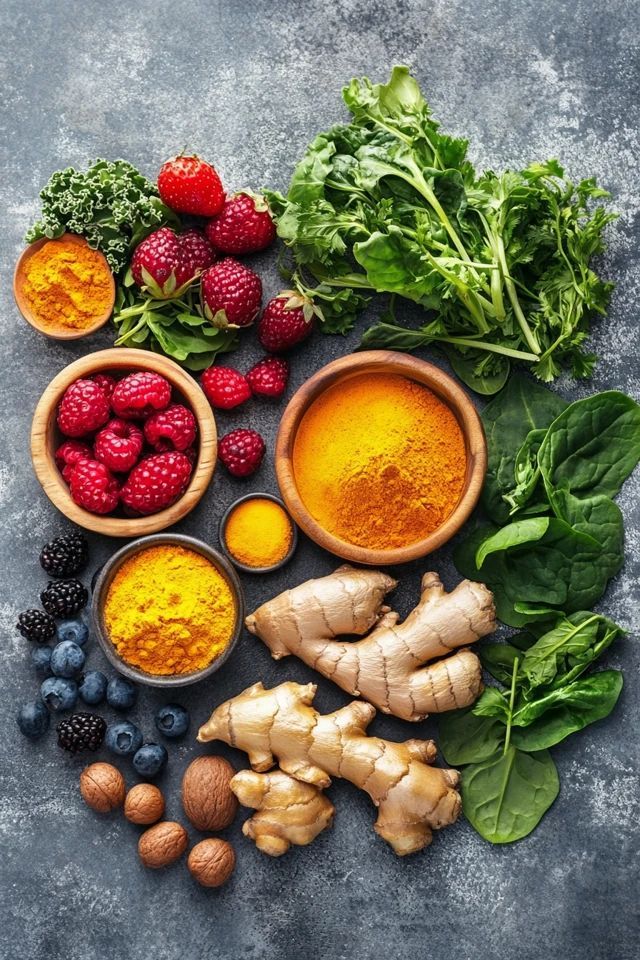10 Best Anti-Inflammatory Foods for a Healthy Gut
Why Gut Health and Inflammation Are More Connected Than You Think
If you’ve ever felt bloated, sluggish, or dealt with digestive issues regularly, your gut might be trying to tell you something. Inflammation is at the root of many health problems, including those that start in the digestive tract.
The good news? What you eat can make a big difference. Some foods naturally fight inflammation and support a healthier gut. Below, we’ll walk you through 10 of the best anti-inflammatory foods for a healthy gut—each one delicious, easy to find, and backed by real research.
1. The Golden Healer, Turmeric

You’ve probably heard of turmeric—and for good reason. This bright yellow spice contains curcumin, a natural compound known for its powerful anti-inflammatory properties.
Why it’s great for your gut:
Curcumin helps calm inflammation in the gut lining and may even support gut barrier function. Add it to soups, smoothies, or make yourself a warm mug of golden milk.
2. Ginger: A Gut-Soothing Root
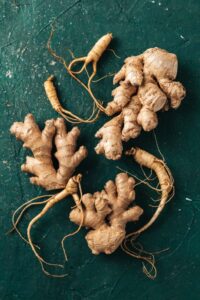
Ginger isn’t just for nausea—it’s a true anti-inflammatory hero. Thanks to compounds like gingerol, it helps calm the digestive system and relieve bloating.
How to enjoy it:
Grate it fresh into stir-fries or steep it in hot water with lemon for a soothing tea.
3. Leafy Greens: The Fiber-Filled Fix
Think spinach, kale, and Swiss chard. These greens are packed with fiber, antioxidants, and vitamins that your gut bacteria love.
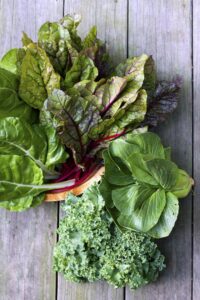
Why it matters:
Fiber feeds the good bacteria in your digestive tract and helps reduce inflammation over time.
4. Blueberries: Small Fruits, Huge Health Benefits

There is more to blueberries than just a delicious snack. They are rich in antioxidants and polyphenols, which shield your cells and support beneficial gut flora.
Bonus:
According to studies, eating blueberries on a regular basis can lower oxidative stress and strengthen your gut barrier.
5. Greek Yogurt: A Creamy Probiotic Powerhouse

Not all yogurts are created equal. Greek yogurt, especially when it contains live cultures, delivers beneficial probiotics that support your microbiome.
What to look for:
Choose plain, unsweetened yogurt to avoid excess sugar, which can feed harmful bacteria.
6. Fermented Foods: Nature’s Probiotics

Fermented foods like kimchi, sauerkraut, kefir, and miso are teeming with live bacteria that help restore balance in your gut.
Why your gut loves them:
They replenish healthy bacteria, improve digestion, and reduce inflammation in the GI tract.
7. Fatty Fish: Omega-3 Goodness
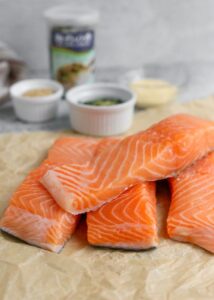
Fish like salmon, sardines, and mackerel are rich in omega-3 fatty acids—essential fats that your body can’t make on its own.
The gut connection:
Omega-3s reduce inflammation in the gut and may improve the balance of bacteria in your microbiome.
8. Chia Seeds: Tiny yet Powerful
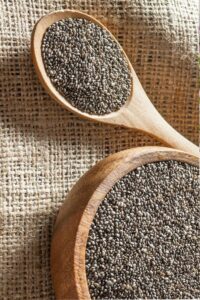
Don’t undervalue these little seeds. They are high in antioxidants, fiber, and omega-3 fatty acids.
Use:
Include them in smoothies, overnight oats, or a straightforward chia pudding. To increase digestibility, just make sure to soak them before eating.
9. Garlic: Prebiotic Power
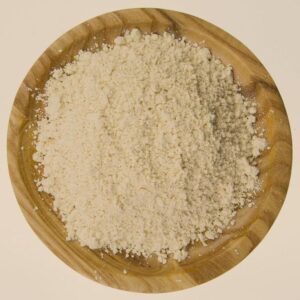
Garlic does more than add flavor. It acts as a prebiotic, meaning it feeds the good bacteria already in your gut.
Gut-friendly tip:
Chop or crush fresh garlic and let it sit for 10 minutes before cooking to activate its anti-inflammatory compounds.
10. Drink Green Tea to Improve Digestion

Rich in catechins like EGCG, which support gut health and reduce inflammation, green tea is more than just a calming beverage.
Try this:
Try drinking green tea instead of coffee for your second cup, and observe how your stomach feels differently.
Conclusion: Your Plate Is the First Step Toward a Healthier Gut
Your gut health doesn’t call for a radical change of lifestyle. It begins with little daily decisions like adding more of these anti-inflammatory foods to your meals. These foods are a great starting point whether your main goal is to feel better generally or you have persistent digestive problems. Food is information for your body, not just gasoline. And when you send your gut the correct signals, it will thank you in more than one way.
Commonly Asked Questions
Q: Can consuming these foods aid in the treatment of leaky gut?
A: Indeed! In order to manage or heal leaky gut, many of these foods aid in reducing inflammation and strengthening the gut lining.
Q: How frequently should I consume these foods?
A: For a well-rounded, gut-friendly diet, try to incorporate a few of them each day or alternate them throughout the week.
Q: Are all of these foods safe to eat?
A: The majority are safe, but consult your doctor first if you have allergies, food sensitivities, or are taking medication.

